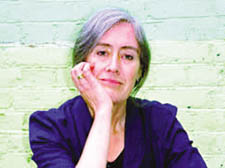
Ann Wroe's book gets into mind of Shelley |
Inside the mind of a lyrical iconoclast
John Calder appreciates Ann Wroe’s fresh analysis of the passions and emotions of the poet Shelley order this book
LEAVING Shakespeare out we must sometimes ask: “Who is the greatest English poet?” In considering the question – and no doubt the BBC will one day ask their audience to vote on it – we should exclude Irish, Scottish and Welsh poets, where the choice could be narrower.
There is, of course, no obvious answer as there would be in Germany (Goethe), Italy (Dante) or Russia (Pushkin), but not in France where there are many candidates as for Britain.
In England the choice would lie between Milton, one of the early Romantics, the Victorians or one of our 20th-century poets, who are numerous and varied.
This, incidentally, is in spite of the failure of poetry to become part of our widening popular culture; the level of seriousness and excellence in appreciation and knowledge has gone down and not up, due mainly to the failure of governments to look seriously at what education is about and what should be taught.
There is a serious case to be made for Percy Bysshe Shelley and although Hampstead author Ann Wroe in her interesting book avoids comparisons, she would probably nominate him as the greatest English poet.
Certainly he could not be called anything other than a poet, unlike Hardy or TS Eliot.
From the earliest picture of him, we see a boy and then a man unwilling to obey any rule or homily, although he did enjoy most of his studies until he was expelled from Oxford for writing The Necessity of Atheism, a well-reasoned and literate essay, but not acceptable in 1811 from a 19-year-old student, nor would it have been from anyone else.
He behaved like a poet – undisciplined, wild, extravagant, rather foppish – a model for Oscar Wilde half a century later.
He went out of his way to shock, behaved like an aristocrat who was above all the rules, disdained both convention and mass culture in spite of his avowed socialism, and simply walked away from anything that limited his freedom or scope, such as authority, creditors or critics.
He did not lack courage, defied the forces of nature as much as convention, as if he were above it all with some kind of protection by his muse, and this brought about his early death by drowning.
What justifies everything is the sheer beauty of the poetry itself, which seems to soar above the ground as naturally as a summer breeze.
Not for nothing did Andre Maurois call him Ariel in his bestselling biography.
Air was his element and no poet has better caught the essence of nature, flowers, clouds, winds, flowing water.
Ann Wroe calls her book an experiment because she is more interested in getting into the mind of Shelley than recalling his life.
As a result her book is not unlike poetry itself, fanciful, lyrical, sometimes a little high-flown, more appreciative of the emotional and artistic results than the critical or analytical, often examining Shelley’s own editing and changes in detail.
She points out that the poet often starts with the music, the rhythms and the beats with which he wants to express what he sees or thinks before he finds the words, and sometimes he does not find them.
She occasionally writes as if Shelley were a character in her novel and she has divided her book into four sections, each of which represents an element into which she puts what she perceives of Earth water, air and fire in his personality, presence and work.
What emerges is that although Shelley’s behaviour in life was frequently outrageous, there was an underlying sharp investigative element in his prose, covering philosophy, political thinking and metaphysics – often a century ahead of its time – that in an open and unprejudiced way examined many of the beliefs and accepted opinions of the era and effectively demolished them.
This is quite apart from the poetry of which he wrote so much, that few people have read more than selections. Among his contemporaries, compared to Keats he is longwinded, compared to Byron much less so, compared to Wordsworth more rational and only Coleridge came near to him in lyrical quality.
Being Shelley is a substantial book and certainly the author does at times seem to be writing from within his mind and emotions.
There is no sequential order and the references bring together themes and associations suggesting that Shelley was prescient of what was coming next, including his death by water.
He was a driven man and Ann Wroe seems often to be writing from inside that drive, passion and self-confidence being her most Shelley-like characteristics.
There can be no answer to the question that opened this review.
There is no greatest English poet on whom we can all agree, but certainly without PB Shelley, poetry would be much poorer and it may be impossible to put anyone above him

|